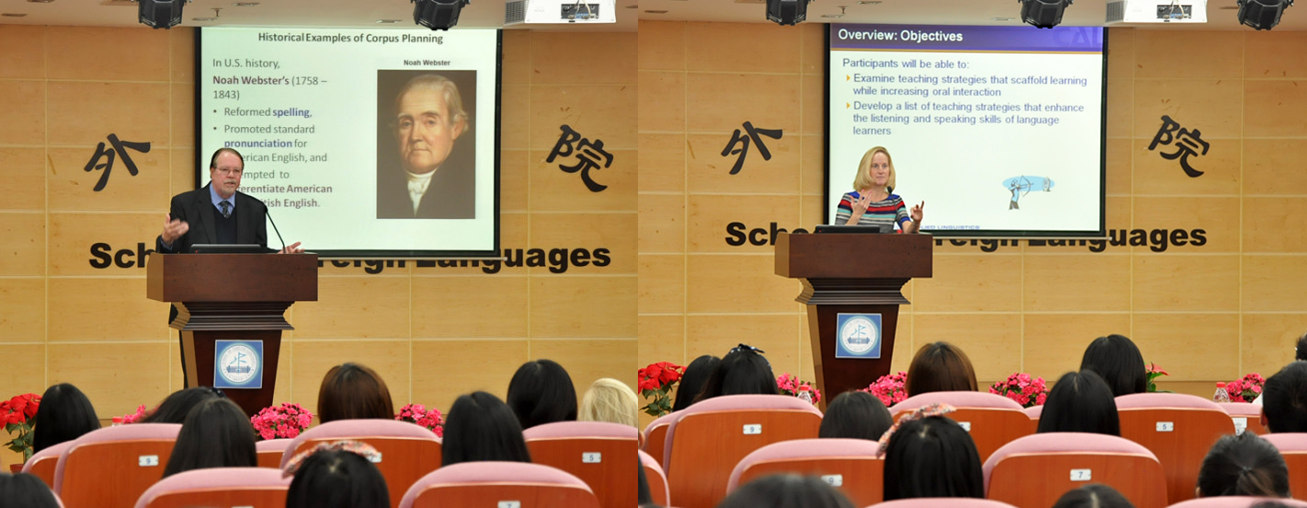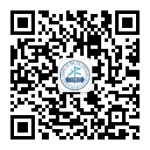
On the afternoon of Otc.22, Terrence Wiley, chairman of the American Applied Linguistics Research Center, and Jen Himmel, director of Development department of Elementary and Middle School Students Language Teachers, were invited to deliver lectures respectively on “ Past, Present and Future of Language Policies Research and Analysis” and “ Teaching Programs for Improving English Speaking” on JiuLong Lake Campus. Terrence Wiley got his PhD of Pedagogy and Language Education major in University of Southern California, and was the chairman of the American Applied Linguistics Research Center, Distinguished Professor of Teaching and learning department at University of Maryland. His research and teaching focus on education and applied language policy, language and immigration, English as a second language and international language teaching as well as bilingualism, tradition and community language education, etc. Dr. Wiley receives many awards in teaching, research and services, such as Outstanding Contribution Award for study and service issued by American Applied Language Study Association. Hosted by Professor Zheng Yuqi, the lecture was attended by hundreds of teachers and students from the School of Foreign Language.
In the first lecture, Dr. Wiley talks about “Past, Present and Future of Language Policies Research and Analysis”, and he wins applause from all the audience with his humorous and simple style. First, Dr. Wiley introduces the definition of language policy to give us a preliminary understanding of this term. He, then, with vivid examples from real life, presents plans of several main language policies, such as State Planning, Acquisition Planning and Top-Down(Government Planning), etc. Dr. Wiley also mentions some strategies about language stimulated by market force, for example, Geoffrey Chaucer, a renowned British poet, wrote in English, which, to a large extent, influenced people’s language behavior.
Ms. Himmel’s lecture deals with teaching program to improve English speaking. She prepares two information sheets about American celebrities as a teaching activity. The information on the two sheets is complementary so that the audiences are able to work in pairs to practice oral English. This vivid activity pushes the lecture into climax.
In today’s economic globalization background, we can never underestimate the function of language policies. Teachers and students attending the lecture all benefit a lot. The lecture also deepens our understanding of influence of language policies and illuminates us in language learning and teaching in the future. In addition, to foreign language teachers, the lecture offer many useful suggestions on how to improve students’ oral English.
(Translated by Zhang Lei)



